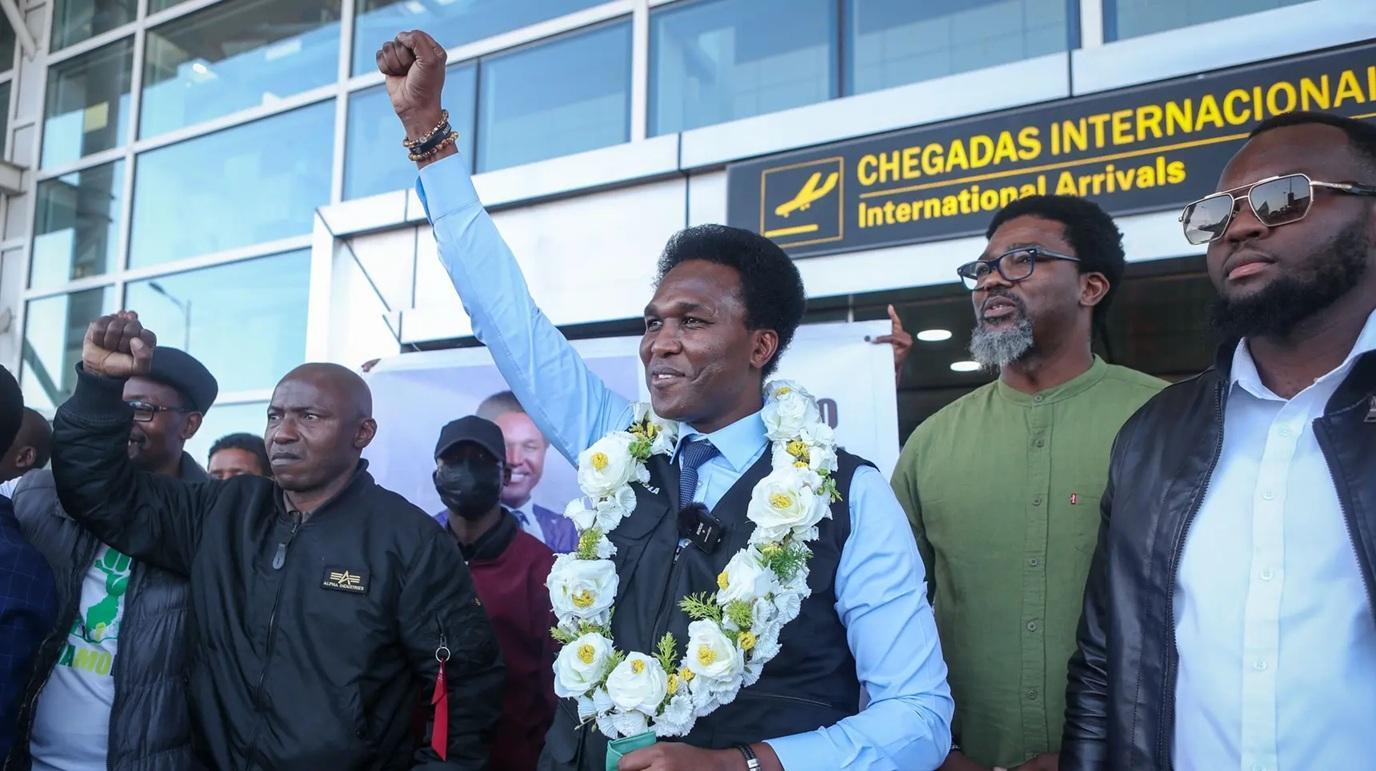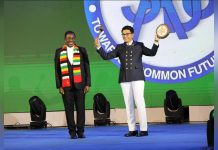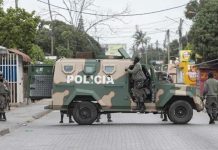Africa-Press – Mozambique. Politician Venâncio Mondlane said on Monday at Maputo airport that the time when Mozambicans were forgotten is “passing into the past”, celebrating with supporters the formalisation of the party, while police were firing shots outside.
“Let it be clear, we are for peace,” Venâncio Mondlane said to reporters as he left the airport after a trip abroad. He was greeted with celebrations by dozens of supporters as he held the flag of his party, Anamola, which was authorized last week by the Mozambican government. The government says it is open to a “common front” with the opposition, already setting a goal of holding local elections within three years.
“In 2028, with Anamola, we will sweep all the municipalities,” said the politician, who in 2023 was the Mozambican National Resistance (Renamo) candidate for the Maputo mayoralty, a victory never recognized by the candidate of the Mozambique Liberation Front (Frelimo, in power since 1975).
While Mondlane was addressing reporters, at around 3:45 p.m., shots fired by the Rapid Intervention Unit were heard outside the airport in an apparent attempt to block access to the airport by more supporters of the former presidential candidate. They also used tear gas.
As Venâncio Mondlane’s motorcade departed, police outside the airport fired several more shots, witnesses reported.
Shortly afterward, dozens gathered outside the politician’s residence, again amidst heavy police reinforcements.
“The time when we were forgotten, the time when it seemed we were invisible, is a time we can say is beginning to pass. Now we are moving toward an era in which those who in the past were trampled, robbed, mistreated, enslaved, can say that we now feel Mozambican,” the politician said earlier.
“The time when the Mozambican people, when they tried to protest, were mistaken for or considered terrorism, that time is passing. And I’ll say more: if defending a people is considered terrorism, if demanding decent transportation and not having men bundled into a trailer and pulled by a tractor, if that is terrorism, then here I am, the chief terrorist, and terrorism will continue,” added Mondlane, alluding to one of the crimes he is accused of by the Public Prosecutor’s Office in connection with the post-election protests.
On August 15, Mozambique’s Ministry of Justice, Constitutional and Religious Affairs accepted Venâncio Mondlane’s party registration application, which had been filed in April, his legal representative, Mutola Escova, told Lusa.
Since the October 9 general elections, Mozambique has experienced a climate of intense social unrest, with demonstrations and strikes called by Mondlane, who rejects the election results that gave victory to Daniel Chapo, supported by the ruling Frelimo party.
According to non-governmental organizations, approximately 400 people died in clashes with the police, conflicts that ceased after two meetings between Mondlane and Chapo, aimed at pacifying the country.
The former presidential candidate announced on August 7 that he had changed his party’s name from Anamalala to Anamola, following a request from the Mozambican government, which considered the previous acronym to carry “a linguistic meaning”.
Anamalala means “it will end” or “it’s over,” an expression used by Venâncio Mondlane during the campaign for the general elections of October 9, 2024 – the results of which he does not recognize – and which became popular during the protests he called in the following months.
The information about the change to Anamola, also meaning National Alliance for a Free and Autonomous Mozambique, was included in the appeal that the former presidential candidate submitted that same day to the Constitutional Council (CC), considering that the Ministry of Justice, Constitutional and Religious Affairs had not responded within the legal deadline to the request to form the party.
In a letter signed by Minister Mateus Saíze and dated May 28, it was stated that the term “Anamalala”, a proposed acronym for the National Alliance for a Free and Autonomous Mozambique, comes from the Macua language, spoken in Nampula, in the north of the country, “and therefore already carries a linguistic meaning for the communication of those who express themselves in it”.
For More News And Analysis About Mozambique Follow Africa-Press






